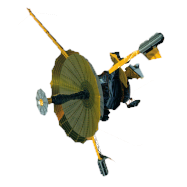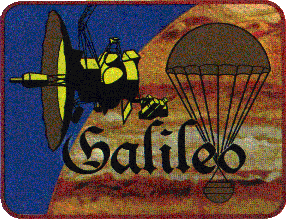The Galileo Energetic Particles Detector
Galileo EPD Handbook
Appendices
Appendix B. SEDR Files (continued)
Source: J. F. Schmidling, JPL 625-610, SIS 224-09, Phase 2 Rev., 6/21/85
3. Access
Programs Using the Interface Data
F&P PI software resident at the home institutions and the Data Management System CDFGEN (Common Data File Generation Program) shall access and process the F&P SEDR data from magnetic tape. Future plans call for the SEDR data resident at JPL to be distributed via electronic means to PI institutions over data or phone lines. For this capability, JPL software shall provide for the loading of SEDR data to a database with the distibution being accomplished either by JPL initiated transmissions or remote user access. In addition, the F&P SEDR may be accessed locally by the Low Rate Science Processor (LRSP) from the F&P SEDR database.
Synchronization Considerations
Timing and Sequencing Characteristics. All records in the F&P SEDR shall be ordered by ascending Spacecraft Event Time (SCET).
Input/Output Protocols, Calling Sequences
SEDR files shall be written to unlabelled magnetic tapes using binary write routines without any overhead. The format shall be as defined in this document.
Next: 4. Detailed Interface Specifications
Return to Galileo EPD Handbook Table of Contents Page.
Return to main
Galileo Table of Contents Page.
Return to Fundamental
Technologies Home Page.
Updated 8/23/19, Cameron Crane
QUICK FACTS
Mission Duration: Galileo was planned to have a mission duration of around 8 years, but was kept in operation for 13 years, 11 months, and 3 days, until it was destroyed in a controlled impact with Jupiter on September 21, 2003.
Destination: Galileo's destination was Jupiter and its moons, which it orbitted for 7 years, 9 months, and 13 days.



